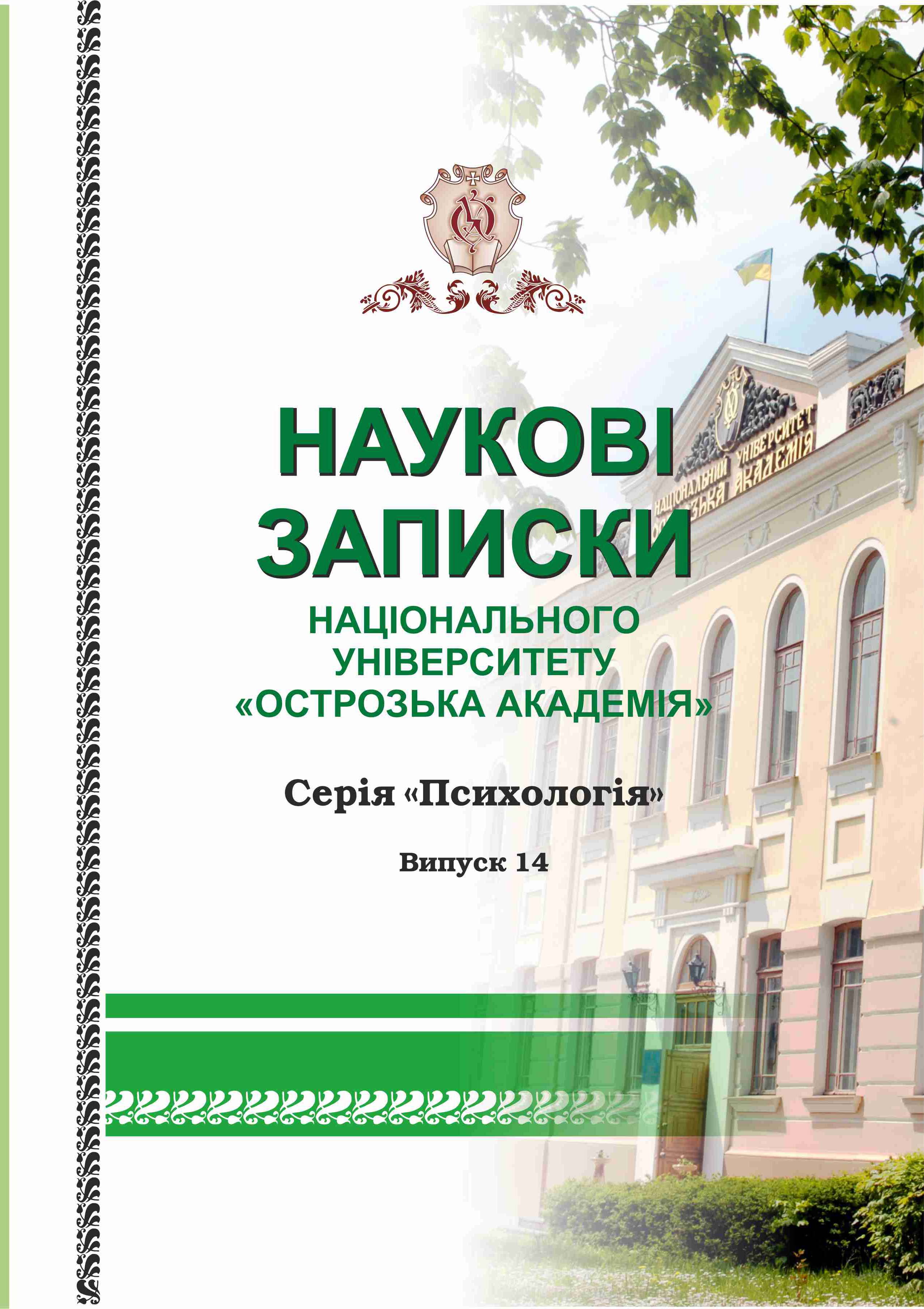STRESS-REACTIVITY AND STRESS-RESISTANCE AND MENTAL HEALTH OF PERSONALITY
Keywords:
homeostasis, responsiveness, stress, mechanism of fight or escape, stress responsiveness, stress resistance, nervous system type, temperament, anxiety, cognitive-behavioral therapy, active leisure, mental health, personalityAbstract
Human health, as a biopsychosocial phenomenon, substantially depends on the responsiveness of an organism under certain conditions of activity and existence. Regarding a human being, the following types of responsiveness have been determined: biological or species-level responsiveness; group or constitutional responsiveness; individual physiological responsiveness; individual pathological responsiveness; specific responsiveness; non-specific responsiveness.
Stress as the general adaptation syndrome and non-specific responsiveness of an organism significantly affects the physical and mental health of a personality by dint of the fight-or-flight or escape mechanisms. Concurrently, the scope of reaction related to the fight or escape is used to characterize stress responsiveness, which is genetically determined and is strictly individual. Thus, the behavioral mechanism of fight or escape preeminently refers to a constituent of unconditioned-reflex and instinctive activities of the human organism.
Furthermore, phylogenetic constituents of the fight or escape mechanism are essentially supplemented by ontogenetic experience, becoming firmly established at the level of conditioned-reflex and instrumental activities. As a result, the main adaptation mechanism of stress responsiveness or mechanism of fight or escape can be viewed as a unique functional combination of inherited and acquired responses (unconditioned-reflex and conditioned-reflex reactions), which will considerably determine somatic and psychic norms as well as pathology of an organism.
In its turn, stress responsiveness is tightly connected with the stress resistance of an organism. Indeed, stress resistance is an individual capability of an organism to maintain normal working efficiency under the influence of a certain stressor. Stress resistance can be enhanced with the help of learning; the essence of this learning lies in the conscious control of the activities of particular organs and systems and the behavioral activity of an organism as a whole. In psychology, stress resistance serves as the basis for successful social cooperation of a personality, which is predominantly characterized by emotional stability, as well as a low level of anxiety. Hence, stress resistance as a constituent of mental health in systemic relations with stress responsiveness contributes to the stability of homeostasis indicators with the involvement of morphological and functional reserves of an organism.
In general, it is expedient to emphasize the following forms of stress responsiveness – low stress responsiveness (hypo stress responsiveness), adequate stress responsiveness (normal stress responsiveness), and increased stress responsiveness (hyper stress responsiveness). At the same time, there is a probable negative influence of both decreased and increased stress responsiveness on the constituents of mental health of a personality.
In a holistic way, stress responsiveness and stress resistance of an organism significantly depend on the particularities of the central nervous system and autonomic nervous system, as well as the specifics of temperament in the corresponding systemic relations. In this respect, the two most important aspects of temperament, such as activity and emotionality (including anxiety) are distinguished.
The diagnostics of stress resistance in the functional connection with stress responsiveness, along with morphological and functional reserves of an organism can include the following levels: 1) morphological level; 2) physiological level; 3) hematological level; 4) biochemical level; 5) immunological level; 6) level of the emotional sphere; 7) level of the cognitive sphere; 8) behavioral level.
Psychophysiological particularities of active leisure and cognitive-behavioral therapy are aimed at the strengthening of stress resistance of an organism, as well as preservation of mental health of a personality under the corresponding conditions of activity and existence.


